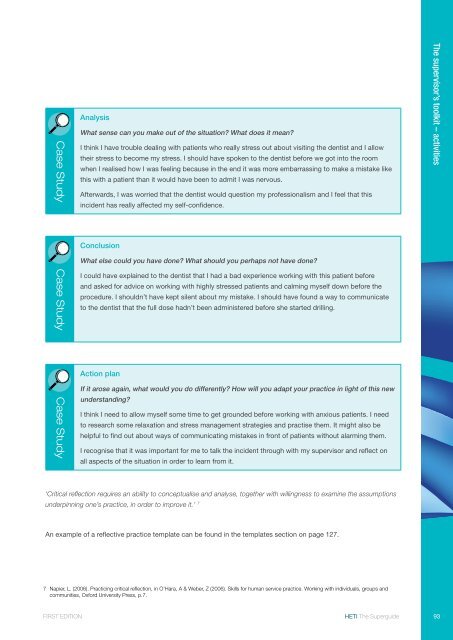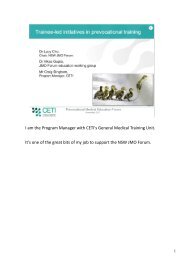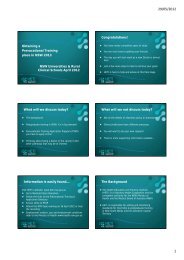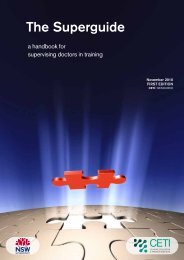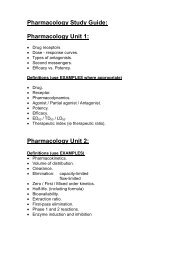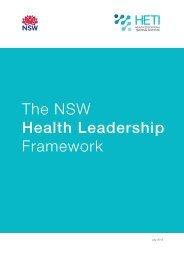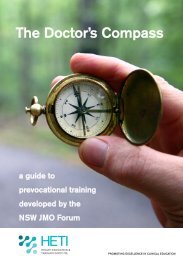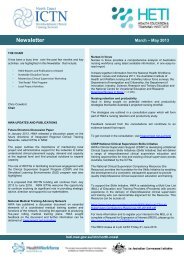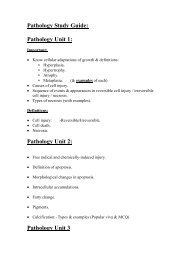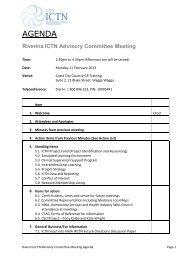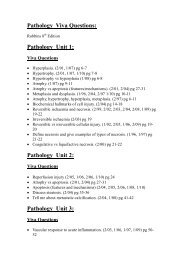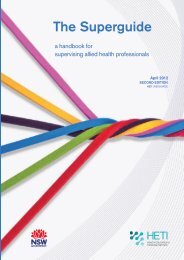Open - HETI - NSW Government
Open - HETI - NSW Government
Open - HETI - NSW Government
- No tags were found...
Create successful ePaper yourself
Turn your PDF publications into a flip-book with our unique Google optimized e-Paper software.
AnalysisWhat sense can you make out of the situation? What does it mean?I think I have trouble dealing with patients who really stress out about visiting the dentist and I allowtheir stress to become my stress. I should have spoken to the dentist before we got into the roomwhen I realised how I was feeling because in the end it was more embarrassing to make a mistake likethis with a patient than it would have been to admit I was nervous.The supervisor’s toolkit – activitiesAfterwards, I was worried that the dentist would question my professionalism and I feel that thisincident has really affected my self-confidence.ConclusionWhat else could you have done? What should you perhaps not have done?I could have explained to the dentist that I had a bad experience working with this patient beforeand asked for advice on working with highly stressed patients and calming myself down before theprocedure. I shouldn’t have kept silent about my mistake. I should have found a way to communicateto the dentist that the full dose hadn’t been administered before she started drilling.Action planIf it arose again, what would you do differently? How will you adapt your practice in light of this newunderstanding?I think I need to allow myself some time to get grounded before working with anxious patients. I needto research some relaxation and stress management strategies and practise them. It might also behelpful to find out about ways of communicating mistakes in front of patients without alarming them.I recognise that it was important for me to talk the incident through with my supervisor and reflect onall aspects of the situation in order to learn from it.‘Critical reflection requires an ability to conceptualise and analyse, together with willingness to examine the assumptionsunderpinning one’s practice, in order to improve it.’ 7An example of a reflective practice template can be found in the templates section on page 127.7 Napier, L. (2006). Practicing critical reflection, in O’Hara, A & Weber, Z (2006). Skills for human service practice. Working with individuals, groups andcommunities, Oxford University Press, p.7.FIRST EDITION<strong>HETI</strong> The Superguide93


